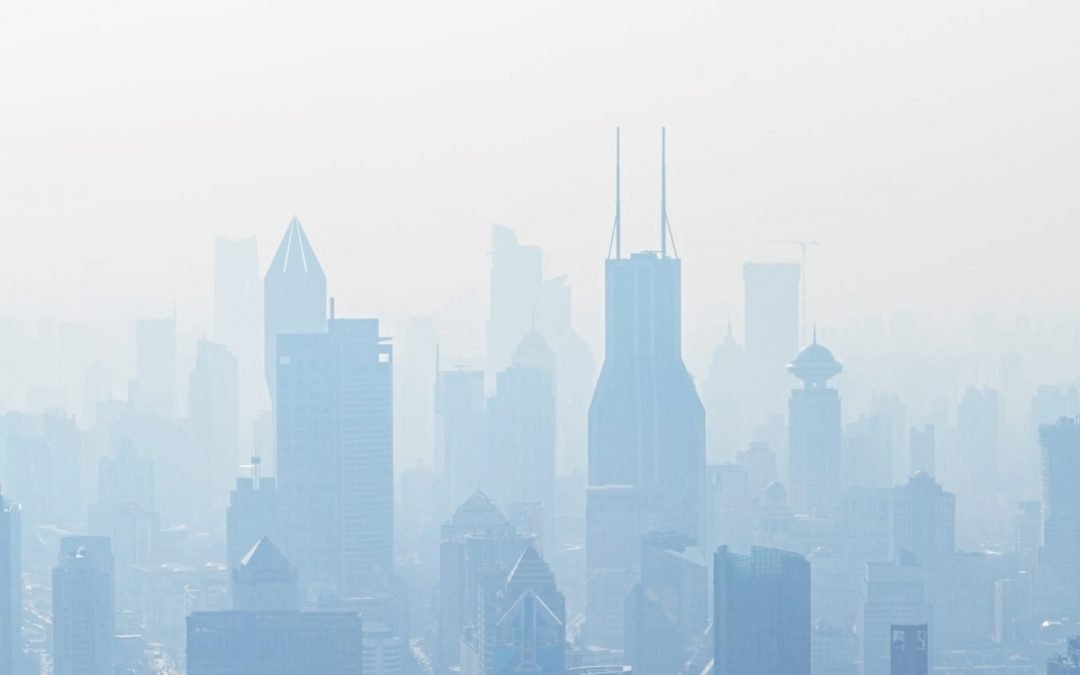Editor’s note: This article first appeared on May 6, 2002. Ball was executive director of the Evangelical Environmental Network at the time of publication. It is reposted today in advance of U.N. World Environment Day on June 5, which has a theme this year of #BeatAirPollution, to provide a basis for comparing the situation today with that from nearly two decades ago.
Smog season is upon us, with higher levels of ozone (smog) occurring from May through September.
More than one in three Americans lives in areas with unhealthy outdoor air, and in many areas, it is getting worse, especially in poorer neighborhoods.
The more we learn about outdoor air pollution’s effects on human health, the more we should be motivated to protect our loved ones and others from this threat.
This is especially true for those who are called to follow the Great Physician and love neighbor as self.
Consider these disturbing facts. For the first time, recent studies have linked outdoor air pollution to:
- The risk of dying from cancer
- Harming the blood vessels of healthy individuals
- Low birth weight, premature births, stillbirths and infant deaths
- Healthy, active children becoming three to four times more likely to develop asthma
- Measurable lung damage in healthy children, which could lead to lung disease
Asthma is reaching epidemic proportions.
- Asthma has increased 74 percent among children and teenagers ages 5 to 14 since 1980, and an astounding 160 percent for children ages 1 to 4.
- By 2020, asthma sufferers are projected to double to 29 million, with one family in five forced to live with the disease.
- Currently, 7 percent of children suffer from asthma, which is the number-one cause of school absences.
- African-American children are four times more likely to die from asthma than white children.
- Asthma deaths in children and adults in caretaking years have increased 40 percent since the mid-1970s.
You can take precautions to protect your family from dangerous air quality by paying attention to the Air Quality Index, or AQI, in your local newspaper or newscast.
The U.S. Environmental Protection Agency has developed a system that rates air quality with a color scheme. Green is good air. Yellow means take caution, especially sensitive populations.
Orange is unhealthy for sensitive populations (children and the elderly, as well as people with heart or lung diseases and people who work or exercise outdoors). Red is unhealthy for everyone. Purple is very unhealthy.
The air quality is rarely purple, but it is yellow and orange for large parts of the nation for much of the summer. The worst smog areas tend to be California, Texas and the eastern United States.
Here’s how you can protect your family during smog season:
- Look for the Air Quality Index of your area. If your paper or TV stations don’t provide this information, ask them to provide it.
- Limit time outside when the weather is “hot and hazy” – code words for unhealthy air.
- Avoid heavy exercise and exertion in the middle of the day, and stop activity if you feel burning in your eyes, throat or sinuses.
- Remember that your children may stay active even when harmful symptoms are present. Health experts suggest limiting your child’s outside activity (duration and strenuousness) in the middle of summer days.
Ozone smog exposure is like getting a sunburn on the inside of your lungs. The more you are exposed, the more damage you can do. Protect yourself and your family so you can breathe easier.
While we should take such precautions, the real solution is cleaner air. Both as individuals and as a society, we must take actions to reduce outdoor air pollution.
As individuals, we should:
- Use public transportation, walk or ride a bicycle whenever possible.
- Drive fuel-efficient vehicles. Keep them tuned up and the tires properly inflated.
- Choose green power for electricity if given the choice.
- Reduce use of electricity by using compact florescent light bulbs, buy efficient appliances with the EPA Energy Star label, make sure your home is insulated properly and turn up the thermostat as much as possible
- Recycle and buy recycled products and products with less packaging.
As citizens, we should support government policies that lead to cleaner air:
- Increase fuel economy standards (called CAFE standards) for vehicles, especially SUVs. Provide tax credits for hybrid and fuel cell vehicles.
- Reduce pollution from power plants. (Ask the Bush Administration not to weaken the Clean Air Act’s New Source Review program.)
- Support renewable energy research and development, as well as a federal requirement that 10 percent of electricity come from renewables by 2010.
Jim Ball is Executive Vice President for Policy and Climate Change at the Evangelical Environmental Network and author of the award-winning book, “Global Warming and the Risen LORD: Christian Discipleship and Climate Change.”

